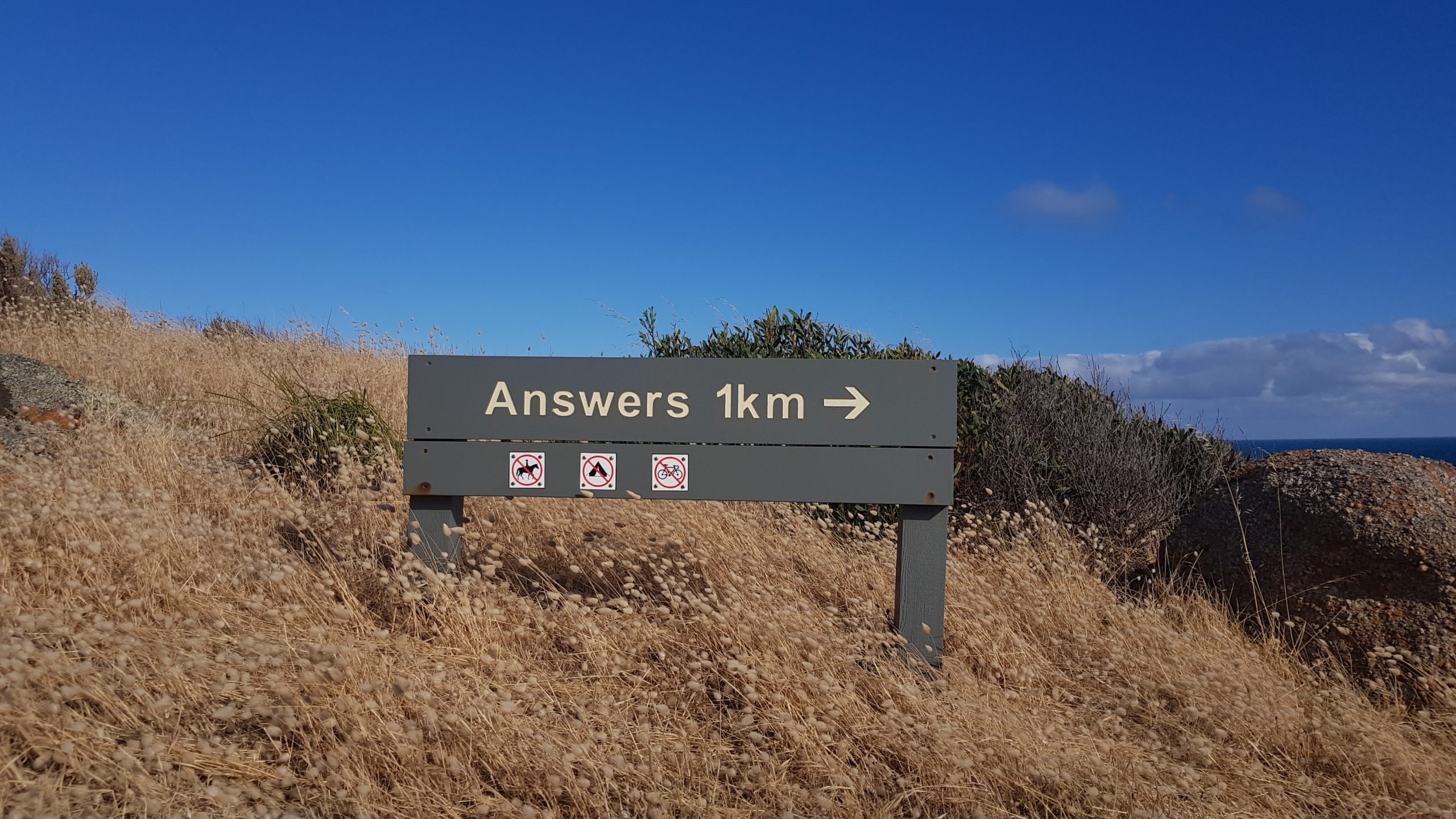
We all know we should ask good questions. The problem is that a lot of the time we don’t do it. We default to the things that are more comfortable.
When I’m teaching coaching skills to leadership, I often have them do a very simple exercise.
Advice versus open ended questions
In pairs, they take turns listening to a colleague, but in the first round, they do it with the hat of a mentor. They can give advice. And boy do they. These conversations typically descend into, “here’s what I’ve tried that’s worked. You should do this.” I hear loads of closed ended questions, lots of yeses and nos as they probe their colleague for what they tried and what they didn’t try.
In the second round, they can’t give any advice, and only can ask open ended questions. (An open-ended question is one that can’t be answered with a yes or a no just in case you were wondering.). They really struggle with this one. But during the debrief, the folks with the issue typically report that the latter exercise, the one where only open-ended questions could be asked, was the one that really expanded their thinking or got them to see something from a different perspective.
Why are open ended questions so powerful?
I’ve often seen the light bulb go off after I debrief this exercise. If I’m asking an open-ended empowering question, the person on the receiving end comes to their own conclusion, not the conclusion that I think could be best for them. The benefit of this is that the person being questioned takes more ownership of whatever the solution is. Have you ever had a great piece of advice which you willingly gave to someone and just couldn’t understand why they didn’t take the idea and run with it? Well, it may have been great for you, but it probably wasn’t great for them. The ability to create one’s own solution creates natural by-in in the problem-solving process. It gives the person with the problem a sense they also have autonomy, which is something that greatly motivates folks and many of us desperately crave this in our work. I can’t tell you how many coaching clients I’ve had who are looking to leave a job who say they don’t have enough creativity in their work. They feel micromanaged. They feel condescended to. It’s not surprising considering it’s sometimes just easier in the short run to “tell” someone how they should do something. The problem is that this way of communicating creates loads of longer-term issues.
Powerful open-ended questions also create engagement. If I’m telling someone what I think they should do, how engaged do you really think they will be in the conversation? Asking a powerful open-ended question opens the dialogue, I am engaging this person on a deep level, getting them to think critically and creatively about the issues they face. And if you don’t think engagement is important, think again. According to Gallup, 80-85% of the workforce is not engaged, or is actively disengaged. Who can afford this in a tight labor market, where good talent is so difficult to come by? Engagement comes directly from a person’s line manager. So when you say that people are leaving because the pay is sub-par, or you don’t have enough benefits, it’s most likely a smokescreen. 70% of the reason someone leaves a job is that they don’t have a good boss.
All this to say that advice is beneficial, but it’s not the only option when a colleague or a direct report is struggling with something. We often forget that each one of us has a coach hat if we are brave enough to pick it up and use it.
What are some great open ended questions?
Try integrating a few of my favorite powerful coaching questions into your repertoire, next time someone comes to you with a problem, and you are tempted to start giving advice:
- What would you do if you knew you could not fail?
- What would you do if there were no constraints?
- What have you tried?
- What are all the things you haven’t tried?
- What assumptions might you be making?
- How might your mindset be coloring your view of this situation?
- What’s the complete opposite way of looking at this situation?
- What tells you that may not be true?
- What does good look like?
- What would be different?
- What can you control?
Think about a few situations where you could start to put on your coach hat. If you did, and started asking more empowering open ended questions, what might change for that person? For your relationship with them?
Shelley Pernot is a leadership and career coach who is passionate about helping her clients discover their strengths and talents and find a career that utilizes them. Reach out to me here for a free consultation to learn more about the coaching process and how it may benefit you!
